Ten useful apps for mobile reporting
Nowadays, most journalists carry mobile recording studios with them without even being aware of it. Almost every smartphone can be used for multimedia reporting – anything from short audio clip productions, taking pictures, recording video interviews, or even creating a blog with a combination of these elements.
Using a smartphone for mobile reporting has many advantages. The most obvious one is being able to capture and edit pictures, audios, and videos anytime because you’ve always got your phone with you. In addition, many smartphone apps and programmes now offer editing functions that are so good that the productions have studio quality.
When you’ve collected and edited your content, you can send or publish it immediately from your smartphone, as long as it has access to mobile networks and the internet.
Many journalists choose Apple’s iPhone
As far as smartphones are concerned, the iPhone is becoming more and more popular among mobile reporters, because new apps are being developed on a regular basis. That’s why we are going to present you ten of the most popular and effective apps for mobile journalism.
![]() read more
read more
Pas facile d’être journaliste au Togo !
Il était venu couvrir une manifestation pacifique du collectif “Sauvons le Togo”, à l’occasion du 52e anniversaire de l’indépendance de son pays. Mais le 27 avril dernier, Noël Kokou Tadegnon n’a pas été en mesure d’exercer son métier de correspondant de la Deutsche Welle et de Reuters : il a été assommé par un coup à la nuque. Il s’explique sur les conditions de cette agression et sur l’état de la liberté de la presse au Togo.
![]() read more
read more
Asian and German experts make sound archives accessible for journalists
Journalists who want to add archived sound material to current affairs stories usually have one big problem: how can they find relevant material in a broadcaster’s archive?
For the keepers of these archives, it’s a challenge to catalog sound material so that it’s easily accessible to journalists. And if the material is on tape or analogue disks, the archive workers also have to find ways to restore and digitize the carriers. Tapes deteriorate easily – especially in tropical climates.
These are key issues that Heidrun Speckmann and Nguyen Pham Hoa Binh (free media consultant in Vietnam) discussed with an international audience at the German Embassy in Hanoi on May 8th, 2012. Heidrun Speckmann has been working as CIM integrated expert and DW Akademie’s Media Archive Developing Consultant at Radio The Voice of Vietnam (VOV) since September 2009.
At the German Embassy, the two archive experts presented their long-term consulting projects aimed at modernizing the sound archives of Asian broadcasters. These projects are financed by Germany’s Federal Ministry for Economic Cooperation and Development (BMZ).
![]() read more
read more
Good bye, Femi, we miss you
Our friend and former participant Femi Adi Soempeno was among the passengers of the Russian Sukhoi jet that crashed near the Indonesian capital on Wednesday, May 9, 2012. Our thoughts and prayers go out to Femi’s family and those who loved her.
For all of us here at DW Akademie, it was a joy and a privilege to have known Femi. We loved working with her during our 2009 workshop “Online Journalism and Web 2.0”.
During this three-week training course, Femi became friends with Akademie staff and trainers and with the other participants; journalists from Cambodia, Bangladesh, Bhutan, Indonesia, China, Pakistan, Nepal and the Philippines.
![]() read more
read more
What is ‘open journalism’?
 Britain’s Guardian newspaper strongly supports open journalism. The Guardian’s editor-in-chief, Alan Rusbridger, wants to engage readers and users. He wants to integrate their knowledge, skills and opinions into the reporting.
Britain’s Guardian newspaper strongly supports open journalism. The Guardian’s editor-in-chief, Alan Rusbridger, wants to engage readers and users. He wants to integrate their knowledge, skills and opinions into the reporting.
Rusbridger’s philosophy is that “journalists are not the only experts in the world.”
In a recent online chat, Alan Rusbridger explained how he understands open journalism:
![]() read more
read more
Mic me up – working with microphones
What’s the right microphone to use?
It would be fair to say in our work across Africa, DW Akademie trainers see just about every type of microphone ever manufactured in use.
Whether it’s in a studio, plugged into a digital recorder or a video camera, we’ve seen and heard everything. From the most expensive specialist mics, to budget mics to microphones that are working antiques, lovingly maintained and still producing quality sound.
![]() read more
read more
Le management des radios burundaises
Une semaine de cours de management organisée par la Deutsche Welle Akademie pour les responsables de stations radio : il était notamment question de multiplier les stratégies qui poussent les annonceurs à acheter des espaces publicitaires auprès des quinze stations de radio présentes au Burundi. Erik Houinsou, formateur spécialisé dans le développement des ressources humaines, s’est concentré sur deux grands dossiers : comment mettre en place une meilleure répartition des tâches au sein d’une entreprise audiovisuelle et comment assurer une meilleure écoute critique des programmes pour en booster la qualité ?
![]() read more
read more
Myanmar: Heading towards freer media
 After decades of censorship, Myanmar is aiming to democratize its media system. In cooperation with UNESCO, the government recently arranged an international media conference. DW Akademie was there.
After decades of censorship, Myanmar is aiming to democratize its media system. In cooperation with UNESCO, the government recently arranged an international media conference. DW Akademie was there.
“I would like to see you all again – in a country with a free and democratic media,” said Ye Htut, Director General of Myanmar’s Ministry of Information, as he said goodbye to the 250 participants attending the media conference in Rangoon.
Until recently, a statement like that would have been unthinkable. “I’m experiencing Myanmar as very open in an impressive way. The atmosphere in this remarkable conference is honest and very sincere,” reports Helmut Osang, DW Akademie’s coordinator for media development.
![]() read more
read more
Making money with your website
Let’s hear the bad news first: fact is that you’re probably not going to get rich through your blog or website.
But the good news is that depending on the quality of your content, it’s not totally impossible to generate money with your site. And there are a number of ways to do that.
The official term for making money from your site is website monetization. The most popular ways to monetize your site involve putting advertisements on it.
![]() read more
read more
Atelier des journalistes sur fond du coup d’état au Mali
Les chances pour que l’élection présidentielle au Mali se déroule de façon démocratique étaient bonnes. Après deux mandats, le président Amadou Toumani Touré n’avait même pas essayé de se porter de nouveau candidat. C’est environ cinq semaines avant la présidentielle que notre séminaire a commencé. Il portait sur la formation de journalistes radio pour la couverture du scrutin.
![]() read more
read more





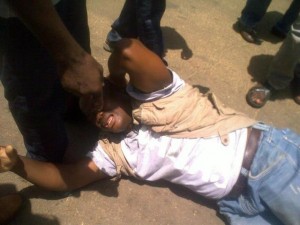
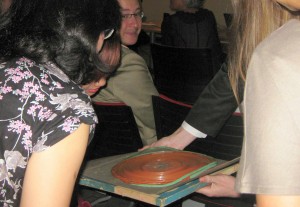
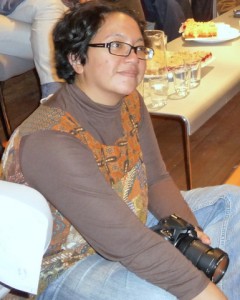

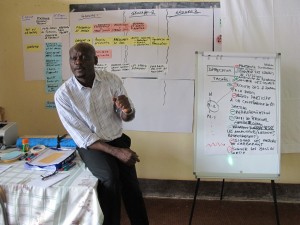

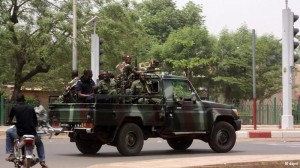




Feedback